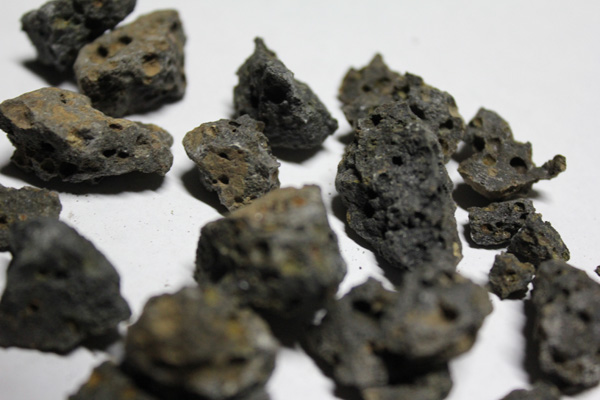
“I have been going a bit nuts trying to find a bulk supplier of Scoria nearby. I was recently reading in an article that the area I live in has large deposits of basaltic scoria; like the biggest in the USA. So I decided to go out and look for it. I didn’t have to go further than my back yard before I noticed this stuff within every foot or so.
I took a few rocks and smashed them with a sledge down to the desired size (3/4″). They broke apart super easy. After researching a bit I began to believe that I hadn’t actually found scoria, but its close cousin, “Vesicular Basalt”. Some people would argue that it is the same thing; however, some of what I have read indicates that Vesicular Basalt has less air holes/pockets than actual Scoria.
I don’t know if you know much about this subject or not, but any advice would be greatly appreciated. I apparently am sitting on an endless (and free) supply of this stuff and I am hoping it might be an acceptable earthbag fill material. After all, it’s all about using as much local materials as possible.”
Sincerely, Arron
Owen: Yes, that will work. It would work best in areas that are not extremely cold because the R-value is lower than scoria. Even then you could add rigid foam board insulation on the outside quite easily if necessary.
Also note, search our Natural Building blog for info about the Scoria Casita. This article and related videos show in detail how to reinforce bag walls of lightweight/loose fill material to make them stable.

Basalt is harder then cinders or scoria. I just purcased some for foundation material on my pump house. It also weighs more. Here in N Az it also costs more. Like 3 times as much as cinders. I paid $22.00/yard vs $7.00/yard for cinders.
the red cinder in hawaii would also work for bag construction and it’s also is a local product
Yes. Use what makes sense — what’s locally available, low cost, sustainable.